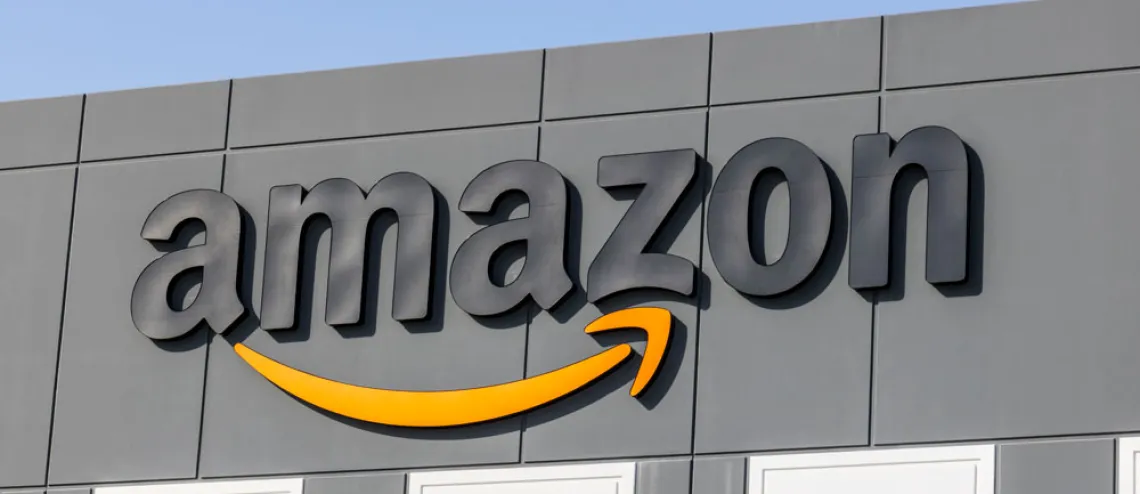Beyond Breakups: Crafting Antitrust Policy for the Digital Age
Professor Barak Orbach's latest work explores whether bigger companies really are bad for competition

Regulatory agencies are facing the largest test in the history of U.S. antitrust enforcement: can they sidestep populist political trends in favor of meaningful consumer protection in the digital age?
University of Arizona James E. Rogers College of Law Professor Barak Orbach discusses that concern and more in his latest paper, “Amazon’s Flywheel, Streaming Wars, and Antitrust Battles” (Arizona Legal Studies Discussion Paper No. 21-14).
Antitrust in the Spotlight
Antitrust, it seems, is having a moment.
In July, President Biden issued the sweeping Executive Order on Promoting Competition in the American Economy with 72 initiatives targeting a variety of sectors. In announcing the order, the White House referenced the Teddy Roosevelt administration breaking up oil and railroad companies in the 1900s to give “the little guy a fighting chance” and framed the order as “taking decisive action to reduce the trend of corporate consolidation, increase competition, and deliver concrete benefits to America’s consumers, workers, farmers, and small businesses.”
The White House has picked a trio of reform-minded progressives to lead federal antitrust enforcement efforts: Lina Khan as chairwoman of the Federal Trade Commission, Tim Wu as head of competition policy (and an author of the executive order), and Jonathan Kanter as the nominee for assistant attorney general for the antitrust division at the Department of Justice.
And it’s not just a partisan issue. Republican Senator Josh Hawley and Democratic Senator Amy Klobuchar have both introduced antitrust legislation this year.

Orbach, who organizes the annual Antitrust Frontiers Global Forum, says the increased focus on antitrust enforcement is no surprise—and is warranted—given the ascendancy of tech giants like Amazon, a company Orbach describes as “the world’s most powerful digital ecosystem.”
In his new paper, Orbach explains that massive technological changes require new regulatory frameworks, but that legal systems are slow to respond. In the absence of responsive regulation and as big companies grow bigger, Orbach says political populism starts to take over.
“Historically, frustrations and anxieties caused by technological disruptions have produced populist surges,” Orbach writes.
That populism becomes a tool that is frequently deployed by politicians, but Orbach argues that calls to break up large companies and block mergers don’t serve the consumer and have no place in modern antitrust policy.
Breaking Up is Hard to Do
“The history of breaking up companies has been a series of failures and inconsequential victories,” Orbach says. “The notion that breaking up companies will help consumers is just nonsensical.”
His paper argues that talk from elected officials and political appointees of breaking up big companies interferes with serious regulation and consumer protection efforts.
“The populist thread of the present antitrust impulse jeopardizes the institutional capacity of the United States to reinvigorate antitrust enforcement,” Orbach writes.
He continues, “My inquiry sheds light on uncharted antitrust territory of great significance: Do the scale, scope, and power of digital ecosystems warrant bans on their entry into competitive markets?"
To answer this question of whether bigger automatically means bad, Orbach’s paper examines two recent Amazon deals—and the discrepancy in the responses they received.
Amazon or Bust?
In March 2021, Amazon announced that it will pay $1 billion per year for exclusive streaming rights to the NFL’s “Thursday Night Football.” Two months later, Amazon announced the acquisition of the film studio MGM.
Orbach says both multi-billion-dollar deals warrant review, but only one has caught the attention of antitrust crusaders and is being reviewed by the FTC.
“The NFL deal … did not prompt calls for antitrust scrutiny, while the MGM deal became a new antitrust battleground,” Orbach writes in his paper. “This discrepancy is strange.”
Orbach explains that the MGM deal may actually increase competition in video streaming and improve options for consumers because Amazon has lagged behind competitors like Netflix and Disney+ in the size of its library and quality of original content.
Meanwhile, writes Orbach, “the NFL deal might cement Amazon’s position as the leading streamer in the important niche of NFL games,” giving consumers more incentive to stay within the Amazon ecosystem. In this case, it’s Amazon’s vertical integration into live sports coverage, rather than a traditional merger, that poses the biggest threat to competition, Orbach says.
Orbach says the MGM critiques “[disregard] benefits to consumers in the form of low prices and convenience of delivery.
“The questions that Amazon’s content deals raise underscore why antitrust law itself must be further developed to protect competition in the digital economy,” Orbach writes.
Where Do We Go from Here?
“The solution is not going to be simple,” Orbach cautions. “These are massive, complex cases and companies that require serious analysis and sophisticated policies.”
Orbach says new policies are needed to replace areas of current antitrust law that he says are “incoherent, outdated, and plainly nonsensical.”
So what makes sense for antitrust enforcement in the age of Amazon?
“In the Digital Age, competition agencies should closely monitor the streaming wars, block transactions that imperil the prospects of competition and multihoming (when a consumer uses multiple platforms), and evaluate the competitive effects of distribution practices,” Orbach writes. “A sensible antitrust policy would recognize that vertical agreements might have anticompetitive effects.”
He adds that, with Amazon in particular, regulators must develop an approach that addresses legitimate concerns about the company’s notorious “flywheel” business model, a strategy wherein “every element in Amazon’s ecosystem intends to drive growth momentum in other elements” and that produces “seemingly unstoppable growth.”
However, any responsible modern antitrust policy must also protect consumer preferences such as low prices and convenience, Orbach says.
On the acquisition side, Orbach says that one productive update would be to shift the burden of proof from regulators to industry. Currently, for the FTC or DOJ to block a deal, the agency must prove the acquisition would harm competition. An improvement to the system would be to require a company to prove that its acquisition won’t harm competition, Orbach says.
Orbach says now is the time to set aside politics and “let the career experts [at regulatory agencies] do the work. Our agencies are the most credible institutions we have.”
Writes Orbach, “American households and the American economy as a whole deserve a more nuanced and more serious approach to competition law and policy.”
Further Reading
- Amazon’s Flywheel, Streaming Wars, and Antitrust Battles (Arizona Legal Studies Discussion Paper No. 21-14)
- Barak Orbach's SSRN Published Papers
- World’s Antitrust Leaders Gather at Conference Co-Organized by University of Arizona Law Professor Barak Orbach
